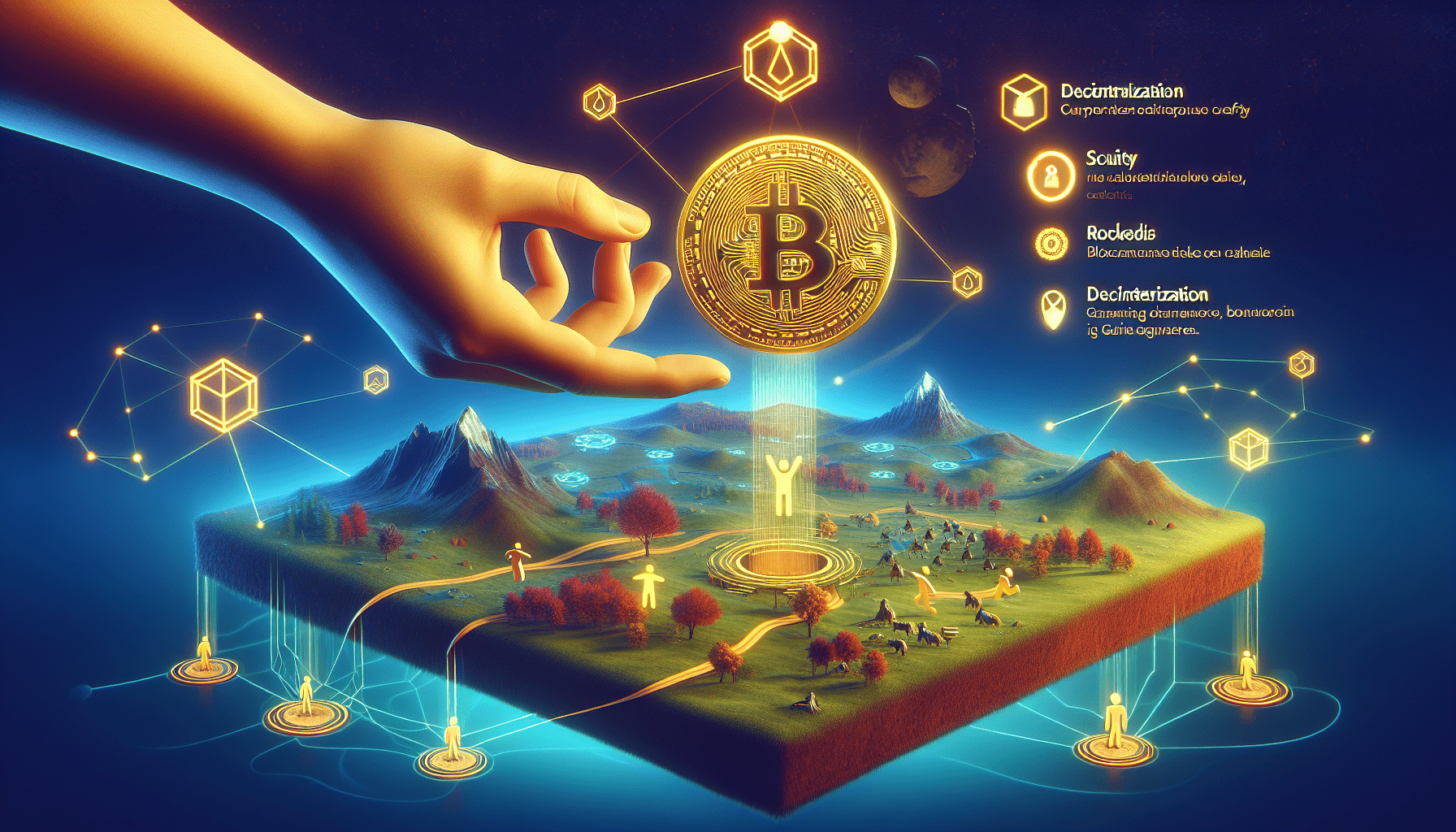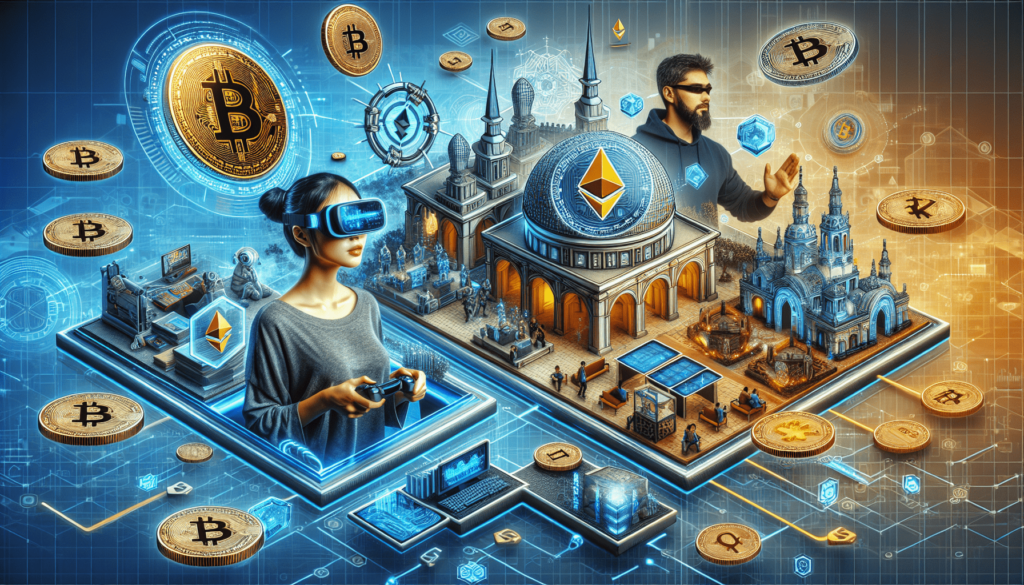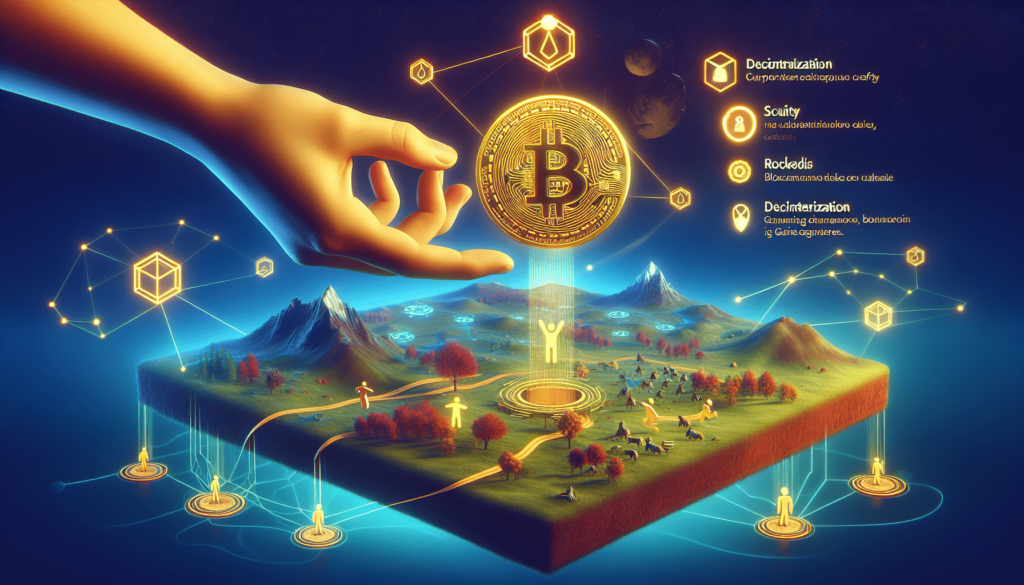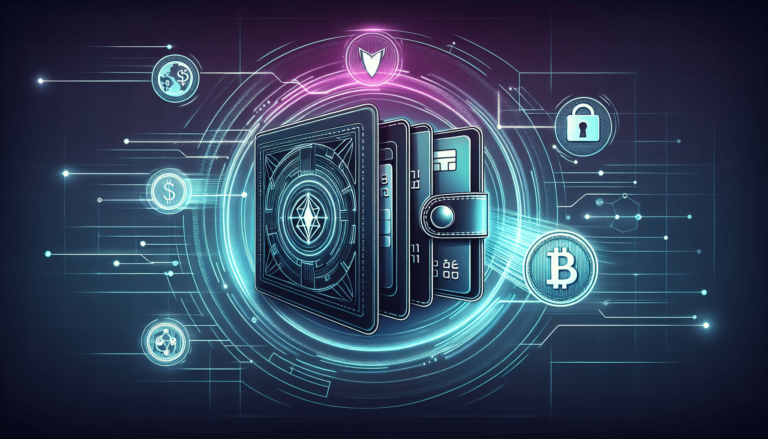Cryptocurrency And Gaming: The Perfect Match

Are you an avid gamer looking for the next big thing in the world of gaming? Look no further, because the perfect match has arrived: cryptocurrency and gaming. This dynamic duo has taken the gaming industry by storm, revolutionizing the way we play and interact with virtual worlds. In this article, we will explore how the integration of cryptocurrency has transformed gaming, bringing new opportunities, challenges, and endless possibilities for players around the globe. So grab your controllers and get ready to embark on a thrilling adventure into the exciting realm of cryptocurrency and gaming.

Overview
Exploring the relationship between cryptocurrency and gaming
Cryptocurrency and gaming have forged a strong relationship in recent years, with both industries taking advantage of the opportunities offered by this innovative technology. This article aims to delve into the advantages that cryptocurrency brings to gamers and game developers, as well as examine the emergence of crypto-based games and the concept of non-fungible tokens (NFTs). Additionally, we will explore the integration of cryptocurrencies into gaming platforms, the rise of decentralized gaming and play-to-earn models, the potential of using cryptocurrency as in-game currency, and the implications of gaming ICOs and crowdfunding. Finally, we will discuss the future possibilities and challenges in the intersection of virtual reality (VR) and cryptocurrency, along with the regulatory concerns and user education necessary for mainstream adoption.
Advantages for Gamers
Direct ownership of in-game assets
One of the most exciting advantages that cryptocurrency brings to gamers is the ability to own in-game assets directly. In traditional gaming, players don’t truly own the virtual items they acquire; instead, they are at the mercy of centralized platforms and game developers. However, with blockchain technology, players can have indisputable ownership of their in-game assets. This means that if a player acquires a rare weapon or a magnificent piece of armor, they can be sure that it belongs to them, and the assets can be traded or sold without any interference from third parties.
Improved security and fraud prevention
Cryptocurrency offers heightened security and fraud prevention measures for gamers. Traditional gaming often suffers from issues such as hacked accounts, stolen in-game items, and unscrupulous practices. By utilizing blockchain technology, transactions and ownership records are decentralized, making it extremely difficult for hackers to compromise players’ assets. Smart contracts, an inherent feature of blockchain technology, ensure that the terms and conditions of in-game transactions are automatically enforced without the need for intermediaries. With the decentralized and secure nature of cryptocurrency, gamers can enjoy peace of mind and focus more on the game.
Easier cross-border transactions
Another advantage that cryptocurrency brings to gamers is the facilitation of seamless cross-border transactions. Traditional payment methods are often burdened with high fees, complicated processes, and lengthy waiting times. With cryptocurrency, players can easily transfer funds across borders and engage in global gaming without hurdles. By eliminating the need for intermediaries such as banks, cryptocurrency enables swift and cost-efficient transactions, fostering a truly borderless gaming experience. This opens up a world of opportunities for gamers to connect, trade, and collaborate with players from different parts of the globe.
Advantages for Game Developers
Increased monetization opportunities
Cryptocurrency presents game developers with increased monetization opportunities. By tokenizing in-game assets and utilizing blockchain technology, developers can create a vibrant ecosystem where players can buy, sell, and trade assets freely. This secondary market for in-game assets allows developers to earn ongoing revenue from transaction fees and takes monetization beyond the initial sale of the game. Furthermore, developers can explore innovative ways of creating rare and valuable assets that can be exchanged for cryptocurrency, enticing players to invest more in their games and driving revenue growth.
Enhanced player engagement and retention
By integrating cryptocurrency into their games, developers can enhance player engagement and retention. The direct ownership of in-game assets, the ability to trade and sell those assets, and the potential for earning real-world value through gaming greatly increase the players’ investment in the game. This sense of ownership and financial incentive leads to increased engagement, as players become more dedicated to improving their virtual assets and achieving in-game success. This, in turn, enhances player retention, as a strong secondary market and the potential for earning real-world value make it harder for players to abandon a game they have invested time and money into.
Innovative gameplay mechanics
The integration of cryptocurrency into games opens up new avenues for innovative gameplay mechanics. Game developers can utilize smart contracts to create dynamic in-game events, competitions, and challenges that are automatically executed and rewarded based on predetermined conditions. For example, a developer could create an in-game treasure hunt where players must solve a series of puzzles to discover a hidden reward. The reward could be a rare cryptocurrency-backed in-game asset that players can own and trade. These innovative gameplay mechanics not only make the gaming experience more exciting but also create unique opportunities for players to interact and collaborate within the game world.
Emergence of Crypto-Based Games
Introduction of blockchain technology
The emergence of crypto-based games can be attributed to the introduction of blockchain technology. Blockchain technology provides a decentralized and transparent platform for creating and managing digital assets, making it ideal for the gaming industry. By utilizing blockchain, game developers can ensure the authenticity and provenance of in-game assets, as every transaction and ownership record is recorded on the blockchain. This fosters trust among players, as the ownership of assets can be independently verified, eliminating the risk of counterfeit or duplicated items.
Tokenizing in-game assets
One of the key elements of crypto-based games is the tokenization of in-game assets. Tokenization refers to the process of creating digital representations of real-world or virtual items using blockchain technology. By tokenizing in-game assets, game developers can create a decentralized marketplace where players can freely trade and sell virtual items. These tokens can have varying levels of scarcity, rarity, and utility, adding value and uniqueness to the assets. Players can truly own these items, and the transparent nature of blockchain ensures that the value and provenance of each asset can be easily verified.
New revenue models
Crypto-based games introduce new revenue models for game developers. Instead of relying solely on upfront game sales or in-game purchases, developers can generate ongoing revenue through transaction fees and the sale of rare in-game assets. The secondary market for these assets creates a whole new economy within the game, where players are incentivized to invest in valuable assets and engage in trading. Developers can also create their own cryptocurrencies or use existing cryptocurrencies as in-game currencies, giving them control over the game’s economy and the ability to generate revenue from exchange fees. These innovative revenue models offer enticing opportunities for developers to monetize their games in ways that were previously unimaginable.

Crypto-Collectibles and NFTs
The concept of non-fungible tokens (NFTs)
Crypto-collectibles have gained immense popularity in recent years, largely due to the concept of non-fungible tokens (NFTs). Unlike cryptocurrencies such as Bitcoin or Ethereum, which are fungible and can be exchanged on a one-to-one basis, NFTs represent unique assets that cannot be interchanged. Each NFT is distinct, and its ownership and authenticity are verified on the blockchain. This makes NFTs perfect for representing rare and valuable in-game assets, such as unique character skins, limited edition weapons, or special abilities. NFTs allow players to collect, trade, and own these exclusive virtual items, giving rise to a whole new market for crypto-collectibles.
Creating and trading crypto-collectibles
With the concept of NFTs, players can create and trade their own crypto-collectibles. Game developers can provide players with the tools and platforms to create their unique assets, which can then be tokenized as NFTs on the blockchain. This empowers players to participate in the creation of the game’s economy and adds a new level of engagement and personalization to the gaming experience. Players can trade their crypto-collectibles with other players, forming a vibrant marketplace where value is determined by supply, demand, and rarity. This aspect of ownership and trading brings a sense of excitement and discovery to the gaming community, fostering a deeper connection between players and the games they love.
Integration with existing gaming ecosystems
Crypto-collectibles and NFTs can be seamlessly integrated into existing gaming ecosystems, allowing players to enjoy the benefits of blockchain technology without disrupting their favorite games. Game developers can integrate NFT functionality into their games, granting players the ability to easily mint, buy, and sell NFTs within the game interface. This integration ensures that players can enjoy the additional benefits of owning and trading unique assets while still being able to fully experience and enjoy the core gameplay. By incorporating crypto-collectibles into existing gaming ecosystems, developers can leverage the excitement and potential of blockchain technology without alienating their existing player base.
Gaming Platforms and Cryptocurrency
Integration of cryptocurrencies into gaming platforms
Many gaming platforms have recognized the potential of cryptocurrencies and have started integrating them into their ecosystems. These platforms allow players to use cryptocurrencies as a form of payment and transact with other players within the platform. By integrating cryptocurrencies, gaming platforms are able to reduce transaction costs, increase transaction speed, and provide a secure and transparent environment for players. This integration also opens up new revenue streams for gaming platforms, as they can earn fees from cryptocurrency transactions, further incentivizing their adoption.
Benefits for platform users
The integration of cryptocurrencies into gaming platforms brings numerous benefits to users. Firstly, users can enjoy lower transaction costs compared to traditional payment methods. Cryptocurrency transactions eliminate the need for intermediaries such as banks, resulting in reduced fees and faster transactions. Additionally, the use of cryptocurrencies enhances privacy and security, as users’ financial information is not directly exposed. Cryptocurrency transactions are pseudonymous, offering players greater anonymity and protection against fraud. Lastly, the borderless nature of cryptocurrencies allows players from different regions to easily transact and participate in the gaming ecosystem, fostering a global community of gamers.
Challenges and potential solutions
While the integration of cryptocurrencies into gaming platforms brings many advantages, there are also challenges that need to be addressed. One major challenge is the volatility of cryptocurrencies, as their value can fluctuate greatly in a short period. This poses a risk for both players and platforms, as the value of in-game assets and currencies can be affected. To mitigate this risk, platforms can implement mechanisms such as stablecoins or pegged cryptocurrencies that maintain a stable value. Additionally, user education is crucial to ensure that players understand the risks and benefits of using cryptocurrencies in gaming, as well as how to securely manage their digital assets. Platforms can provide resources, tutorials, and support to help users navigate the world of cryptocurrencies and make informed decisions.
Decentralized Gaming and Play-to-Earn
Decentralized gaming ecosystems
Decentralized gaming ecosystems are an exciting development within the cryptocurrency and gaming space. These ecosystems are built on blockchain technology, where the game rules and operations are governed by smart contracts and decentralized autonomous organizations (DAOs). By removing centralized authorities and intermediaries, decentralized gaming ecosystems give power and control back to the players. Players can participate in the governance of the ecosystem, propose changes, and vote on important decisions. This community-driven approach fosters transparency, fairness, and inclusion, creating a gaming environment that aligns with the interests and values of players.
Earning real-world value through gaming
One of the key aspects of decentralized gaming ecosystems is the ability to earn real-world value through gaming. In traditional gaming, the time and effort invested in the game often do not translate into tangible rewards. However, with play-to-earn models enabled by blockchain technology, players can earn cryptocurrency or other valuable assets by participating in the game. This creates new economic opportunities for players, especially those from developing countries, where the ability to earn real-world value through gaming can have a significant impact on their livelihood. Play-to-earn models align the interests of players and developers, as players are incentivized to actively participate in the game, driving engagement, and fostering a thriving gaming community.
Community-driven development and governance
Decentralized gaming ecosystems empower players to actively participate in the development and governance of games. Traditional game development often lacks transparency and fails to address the needs and desires of the player community. However, decentralized gaming ecosystems allow players to have a say in the direction of the game, propose changes, and contribute to its development. This community-driven approach ensures that games align with the desires and values of the players, leading to a more engaging and enjoyable gaming experience. Additionally, decentralized governance mitigates the risk of centralized authorities making decisions that could negatively impact the player community, ensuring a fair and inclusive gaming environment.
Cryptocurrency as in-Game Currency
Replacing traditional in-game currencies
Cryptocurrency has the potential to replace traditional in-game currencies, offering numerous benefits to both players and game developers. Traditional in-game currencies are often limited in their utility and are confined to the specific game in which they are used. However, cryptocurrency can be used across multiple games, creating a unified and interoperable currency that transcends individual game boundaries. This allows players to accumulate and utilize their virtual wealth across different gaming ecosystems, enhancing the value and versatility of their in-game assets. Furthermore, the transparent and decentralized nature of cryptocurrency ensures that the value and supply of in-game currency can be easily verified, reducing the risk of inflation or arbitrary changes by game developers.
Reducing transaction costs and barriers
Cryptocurrency as in-game currency reduces transaction costs and barriers for players. Traditional payment methods often involve high fees, especially for cross-border transactions, which can be a deterrent for players. By using cryptocurrency, players can enjoy lower transaction costs and faster transactions, as intermediaries are eliminated. Additionally, cryptocurrency eliminates the need for players to have a traditional bank account or credit card, removing potential barriers to entry for individuals who may not have access to these financial services. This inclusivity ensures that players from all walks of life can participate in the gaming economy, fostering a more diverse and vibrant player community.
Creating a global economy
Perhaps the most exciting aspect of using cryptocurrency as in-game currency is the creation of a global economy within the gaming world. Cryptocurrency transcends national boundaries, making it possible for players from different countries to participate in a unified economy. This has significant implications for global trade, as players can freely trade and exchange in-game assets with others from around the world. The creation of a global economy fosters cultural exchange, collaboration, and the formation of international gaming communities. It also creates a more dynamic and liquid market, as players have a larger pool of potential buyers and sellers for their in-game assets, resulting in more efficient price discovery and value creation.
Gaming ICOs and Crowdfunding
Using initial coin offerings (ICOs) for game development
Gaming ICOs have emerged as a popular way to fund game development projects. An initial coin offering (ICO) involves the issuance of a new cryptocurrency or token to the public, with the proceeds being used to fund the development of a project. In the gaming industry, ICOs allow game developers to raise funds directly from the gaming community, creating a sense of ownership and involvement among the players. ICO participants often receive tokens that can be used within the game or have the potential to appreciate in value. This innovative funding method enables developers to finance their projects while simultaneously building a dedicated player community that is financially invested in the game’s success.
Crowdfunding games with cryptocurrency
Aside from ICOs, game developers have also embraced crowdfunding as a means of financing their projects using cryptocurrency. Crowdfunding platforms that accept cryptocurrency as a form of payment provide developers with an alternative to traditional funding models. These platforms allow game developers to showcase their projects to a global audience and receive financial support in the form of cryptocurrency contributions. Crowdfunding games with cryptocurrency not only provide developers with the necessary funds but also help to gauge market interest and gather valuable feedback from potential players. This collaborative funding approach empowers developers to bring their game concepts to life while building a dedicated and supportive community around their projects.
Potential risks and regulations
While gaming ICOs and crowdfunding with cryptocurrency present exciting opportunities, there are also potential risks and regulatory concerns that need to be considered. One major risk is the prevalence of fraudulent or unsuccessful projects that fail to deliver on their promises. Due diligence is essential when investing in gaming ICOs or contributing to crowdfunding campaigns, as the lack of proper regulation in the space can make it easier for scammers to take advantage of unsuspecting investors. Additionally, regulatory bodies are increasingly scrutinizing ICOs and crowdfunding campaigns, which may result in stricter regulations to protect investors. Game developers and participants must stay informed about the legal and regulatory landscape to ensure compliance and protect themselves.
Future Possibilities and Challenges
Integration of virtual reality (VR) and cryptocurrency
The integration of virtual reality (VR) and cryptocurrency holds immense potential for the future of gaming. VR has already transformed the gaming experience, immersing players in virtual worlds and allowing them to interact with their surroundings. By introducing cryptocurrency into VR gaming, players can take the concept of ownership and trading to a whole new level. Imagine exploring a virtual marketplace within a VR game, where players can buy, sell, and trade virtual assets using cryptocurrency. The combination of VR and cryptocurrency has the potential to create a truly immersive and dynamic gaming ecosystem, where players can fully realize their digital dreams and engage in new forms of gameplay and interaction.
Regulatory concerns and consumer protection
One of the main challenges for the future of cryptocurrency and gaming is the need for robust regulation and consumer protection. As cryptocurrencies and crypto-based games gain mainstream adoption, regulatory bodies are increasingly focusing on these industries. Regulation is necessary to protect consumers from fraud, safeguard financial stability, and ensure fair practices. However, striking the right balance between regulation and innovation is crucial. Overregulation can stifle innovation and hinder the growth of the industry, while inadequate regulation can expose consumers to risks and scams. It is essential for regulators to work closely with industry stakeholders to develop sensible and effective regulatory frameworks that protect consumers while fostering innovation and growth.
Mainstream adoption and user education
Another challenge for the future of cryptocurrency and gaming is achieving mainstream adoption and user education. While cryptocurrency has gained popularity, particularly among tech-savvy individuals, it is still relatively unfamiliar to many. To achieve widespread adoption, it is crucial to educate users about the benefits, risks, and mechanics of using cryptocurrency in gaming. User-friendly interfaces, detailed tutorials, and clear information about security practices are essential to build trust and encourage adoption. Additionally, collaborations between gaming platforms, developers, and cryptocurrency companies can help bridge the gap between the gaming and cryptocurrency communities, introducing players to the world of cryptocurrency in a familiar and accessible manner.
In conclusion, the relationship between cryptocurrency and gaming is a perfect match, offering a multitude of advantages for gamers and game developers alike. Direct ownership of in-game assets, improved security and fraud prevention, and easier cross-border transactions empower gamers, fostering a more engaging and global gaming experience. Game developers benefit from increased monetization opportunities, enhanced player engagement, and the ability to explore innovative gameplay mechanics. The emergence of crypto-based games, the concept of non-fungible tokens (NFTs), and the integration of cryptocurrencies into gaming platforms further expand the possibilities and potential of this relationship. Decentralized gaming and play-to-earn models offer players the chance to earn real-world value through gaming, while the use of cryptocurrency as in-game currency creates a global economy within the gaming world. Gaming ICOs and crowdfunding with cryptocurrency provide alternative funding models for game development, although regulatory concerns and risks need to be addressed. Looking to the future, the integration of virtual reality (VR) and cryptocurrency holds great promise, but regulatory concerns and user education remain challenges to achieve mainstream adoption. Nonetheless, the intersection of cryptocurrency and gaming presents an exciting frontier with endless possibilities for innovation, engagement, and economic empowerment.








